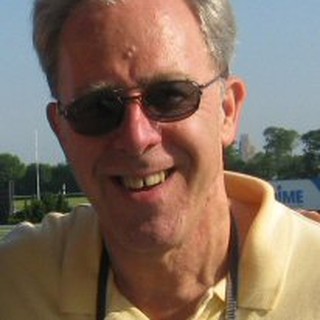Tomorrow is the feast of all saints. These are the holy people in our lives who didn’t make headlines but quietly made their way to heaven. They did their work, raised their families, prayed, and put the love of God into everything they did. When St. Paul spoke of “a great cloud of witnesses,” he wasn’t talking about a crime scene but the communion of saints. For no one goes to heaven alone. When the Bible says, “Be ye perfect as your heavenly Father is perfect,” it doesn’t mean you don’t sin greatly or don’t sin at all. It means you strive to conform to God’s grace and seek his mercy.
For the English-speaking world, tomorrow is a doubly special day. Pope Leo XIV will name John Henry Newman, a former Anglican priest who later became a Catholic Cardinal, as the 38th Doctor of the Catholic Church. To be a Doctor means you are a canonized saint (holy life plus two verified miracles), your writing has doctrinal orthodoxy, universal applicability, and enduring value.
Many of Newman’s published writings consist of sermons he gave as a Protestant chaplain at Oxford, giving his work an ecumenical flavor. In fact, he wrote 40 books (theological works, essays, novels, poetry, and collections of sermons) and 21,000 letters to friends and associates. Only Thomas More, another Londoner, matches him for output in English, with the advantage going to Newman, whose English is modern.
Newman died in 1890 during the Victorian era. In fact, when the Titanic went down, one of the hymns the stranded passengers sang was set to his poem, “Lead Kindly Light.” Dozens of universities in the United States were inspired by his book “The Idea of a University.” Written in the 1850s, it advocated the liberal arts core curriculum in which the light of reason is illuminated by the light of faith. Schools as large as the College of Arts and Letters at the University of Notre Dame and as small as the University of Dallas in Texas have attempted to implement Newman’s vision.
In World War II, two German Protestants, Hans and Sophie Scholl, were deeply influenced by Newman’s writing, especially his sermon “Testimony of Conscience.” They started the White Rose protest movement, a crime for which they were guillotined. Today, 200 schools are named after Sophie Scholl.
Newman wrote in 1874, “For thirty, forty, fifty years I have resisted to the best of my powers the spirit of liberalism in religion… it is the doctrine that there is no positive truth in religion.” He foresaw the approach of the agnosticism, indifferentism, and relativism that has become normalized today.
He called for an integration of faith and reason, a dedication to discovering and doing the will of God, cost what it may. Of course, doing the will of God in a country turning from God made him in many ways the patron saint of the misunderstood and rejected.
He founded the English branch of the Oratory, a religious association of priests, in Birmingham. Its first home was a converted gin factory where Newman preached to factory workers. In an interesting side note, when J.R.R. Tolkien’s father died in the 1890s, the family was nearly destitute. In time, they turned to the Oratory for help. In 1904, when his mother became disabled and died, she entrusted her two boys to the care of Fr. Francis X. Morgan at the Oratory. Tolkien would later name his son after this father figure. Some speculate there is more than a little of his beloved Fr. Francis in Gandalf.
Newman’s many letters are a model of his deep sensitivity and devotion to the importance of friendship.“Friendship is the natural extension of Christian love; it begins with love for family and close companions and then expands to love for all mankind,” he wrote.
Newman was an example of faith even in the face of perplexity, charity in spite of feelings, and hope as the true antidote to the voices of despair that whisper in the ear of modern man.
Related: Rethinking Halloween?
He wrote:
God has created me to do him some definite service; He has committed some work to me which he has not committed to another. I have my mission; I never may know it in this life, but I shall be told it in the next. I have a part in a great work; I am a link in a chain, a bond of connection between persons. He has not created me for naught. I shall do good, I shall do His work; I shall be an angel of peace, a preacher of truth in my own place, while not intending it, if I do but keep His commandments and serve Him in my calling.
A few days before his death, Pope Benedict XVI was told a committee in Rome was studying Newman as a possible doctor of the church. His face lit up and he said, “Ah, Newman, doctor of the church. He will be a light in the darkness of this time.”
Help us continue to report the truth about the Schumer Shutdown. Use promo code POTUS47 to get 74% off your VIP membership.










Join the conversation as a VIP Member